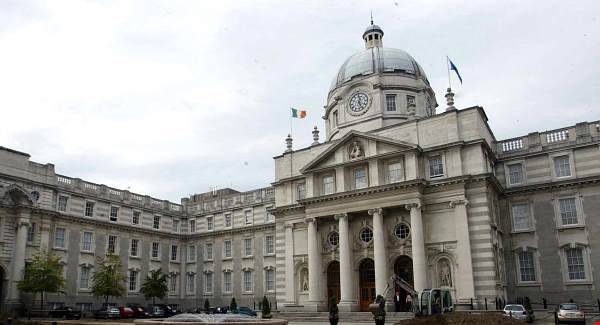Government have announced Dr Andrea Johnson and David Cagney as the co-chairs for the national review of state supports for PhD researchers.
The appointment follows Harris’ announcement last month that a government review of PhD supports would take place.
Announcing the appointees, Harris said that they “bring the right balance of skills and perspectives to lead this review”, which will require “comprehensive and considerate consideration”.
He called the review a “commit[ment] to investing in talent, and ensuring that there are appropriate supports for researchers”.
Harris added: “We want Ireland to be a leader in talent. In order to do that, we have to ensure that our brightest talent here in Ireland can pursue their research ambitions in a supportive environment.”
Dr. Andrea Johnson is chairperson of the Women in Technology & Science Ireland (WITS), whose five year strategic plan aims to boost retention of women in STEM careers. With a PhD in computer science from University College Cork (UCC), she is also vice president of technology at Workhuman, an Irish Technology Unicorn, and a researcher and lecturer in UCD.
Recently retired as chief human resource officer for the civil service, David Cagney has previously worked as director of human resources at the Dublin Institute of Technology (DIT), as well as in other HR roles.
He also spent three years as a vice chairman of the Employment Appeals Tribunal.
The review is set to examine current supports for PhD students, the nature of their status (employee versus student), and their graduate outcomes, including return on investment to graduate researchers.
It will also look at visa regulations for non-EU researchers, and how potential changes to current supports will affect the funding of research programmes.
It comes in response to prolonged demands for better supports from those undertaking PhDs.
The Postgraduate Workers’ Alliance (PGWA) welcomed the review last month, while also acknowledging that it is “merely a first step”.
“The announcement of this review is an encouraging sign for PGWA and the PhD researchers that have campaigned for reform in recent months.”
They added: “We will continue to escalate and broaden the base of our campaign until significant reforms are implemented in full – we will not settle for reports, statements or temporary solutions, we need deep, structural changes to how PhDs operate in Ireland.”
The average EU PhD stipend is €32,100, compared to €16,500 in Ireland. A recent survey of 285 PhD students in Ireland conducted by researchers from Trinity found that 100% of respondents said that they were living under the minimum wage.
The recent USI national student walkout, and USI protest outside the Dáil with the PhDs’ Collective Action Union (PCAU), both cited increasing this stipend to €28,000 as one of their main demands.
PWGA urge Harris to engage with them during the review, as a representative body for PhDs.
Government will receive the report’s recommendations in early 2023.






